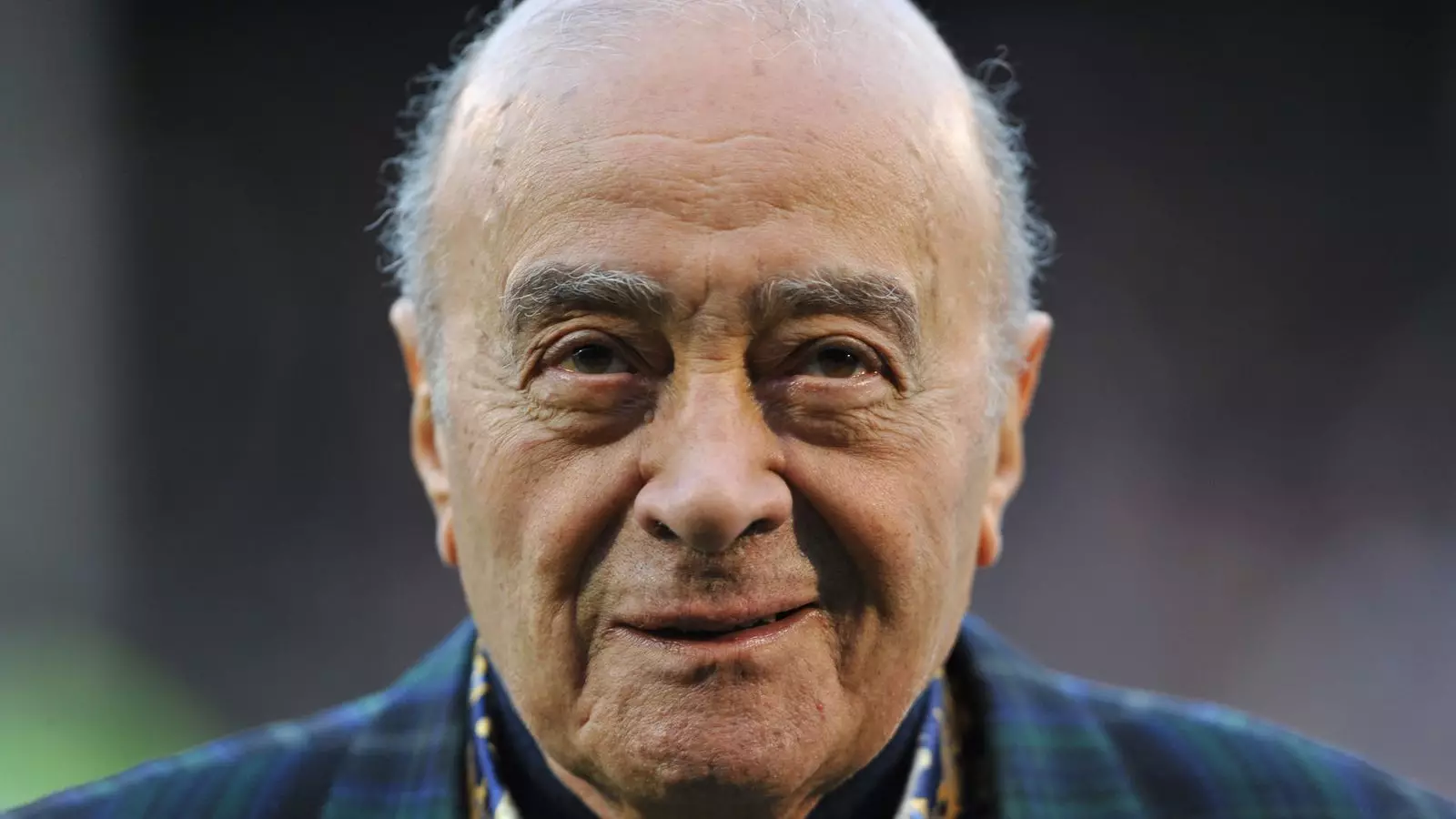Mohamed al Fayed, the former owner of Harrods and a notable figure in British society, passed away at the age of 94 last year, leaving behind a complex and contentious legacy. Recently, allegations have emerged that paint a dark portrait of his character and behavior, as numerous women have come forward claiming that they were victims of sexual abuse during their tenure at his renowned department store. These revelations have sparked renewed interest not only in Fayed’s actions but also in the institutional responses to such allegations, particularly from the Crown Prosecution Service (CPS).
The narrative surrounding al Fayed has taken a significant turn with victims asserting that he systematically targeted women, allegedly selecting them for encounters in his executive suite. The legal representation for these women has described him as a “monster,” reacting to the haunting implications of the allegations. With more than 150 inquiries reportedly made into Fayed’s alleged misconduct, the weight of these claims raises questions about the broader implications regarding those in positions of power and the protections afforded to them.
In particular, the allegations span multiple instances, including a notable accusation of indecent assault against a 15-year-old girl in 2008 and a rape allegation in 2013, which ultimately did not lead to any charges. The CPS has clarified its decisions not to prosecute based on conflicting evidence, expressing that a ‘realistic prospect of conviction’ was not established in either case. This begs reflection on the standards and burdens of proof used in such sensitive cases and highlights a gap that often leaves victims feeling unheard and unsupported.
Crown Prosecution Service’s Response
The CPS’s response illustrates the complexities involved in prosecuting sexual abuse allegations. While the service monitored the situation and provided advice to the Metropolitan Police at various intervals between 2018 and 2023, the lack of concrete evidence led to no further action. Such inaction may point to critical issues within the system itself, where victims feel their allegations are marginalized or ignored.
Further complicating this matter is a recently televised BBC documentary that reignited interest in al Fayed’s past, resulting in a surge of inquiries. However, the CPS’s reliance on evidence that does not materialize raises ethical concerns regarding how such high-profile cases are managed and the potential implications for justice.
Concerns from Within the Security Community
The concerns regarding al Fayed are not isolated to legal circles; they resonate within law enforcement and even the royal family apparatus. Dai Davies, a former head of royal protection, remarked that the royal family had been made aware of his troubling reputation well before Princess Diana took her children on holiday with him. This acknowledgement of pre-existing concerns about al Fayed’s character poses questions about the protective measures in place for vulnerable individuals, particularly those in celebrity circles.
Davies’ comments underscore the perceived negligence that may have allowed these troubling dynamics to persist unchallenged. His horror upon learning that the future King and his brother would vacation with al Fayed exemplifies how reputations can shadow public figures, and how crucial it is for institutions to act when red flags emerge.
In light of the prevalent allegations, Harrods, which retained ties to al Fayed before his passing, has expressed its dismay over the disturbing claims associated with its former owner. This public acknowledgment highlights an institution grappling with its historical affiliations and the repercussions stemming from them. The establishment has even established a mechanism to encourage other employees to come forward with their experiences, indicating a willingness to reevaluate past behaviors and a commitment to healing.
Similarly, Fulham FC, a club owned by al Fayed from 1997 to 2013, has publicly proclaimed its distress over the numerous sexual abuse claims linked to the businessman. This reaction reveals a broader cultural reckoning within organizations that have ties to powerful individuals whose legacies contain dark chapters.
The unfortunate saga of Mohamed al Fayed serves as a critical reminder of the intricate tapestry woven by fame, power, and accountability. As investigations continue and more victims come forward, society must scrutinize how institutions respond to allegations of abuse. It is my hope that these revelations foster a deeper understanding of the necessity for transparency and support for victims, ensuring that their voices resonate in the halls of justice. We stand at a pivotal moment where the balance of power must shift, granting equal weight to the testimonies of those who have found themselves ensnared in the shadows of the powerful.


Leave a Reply